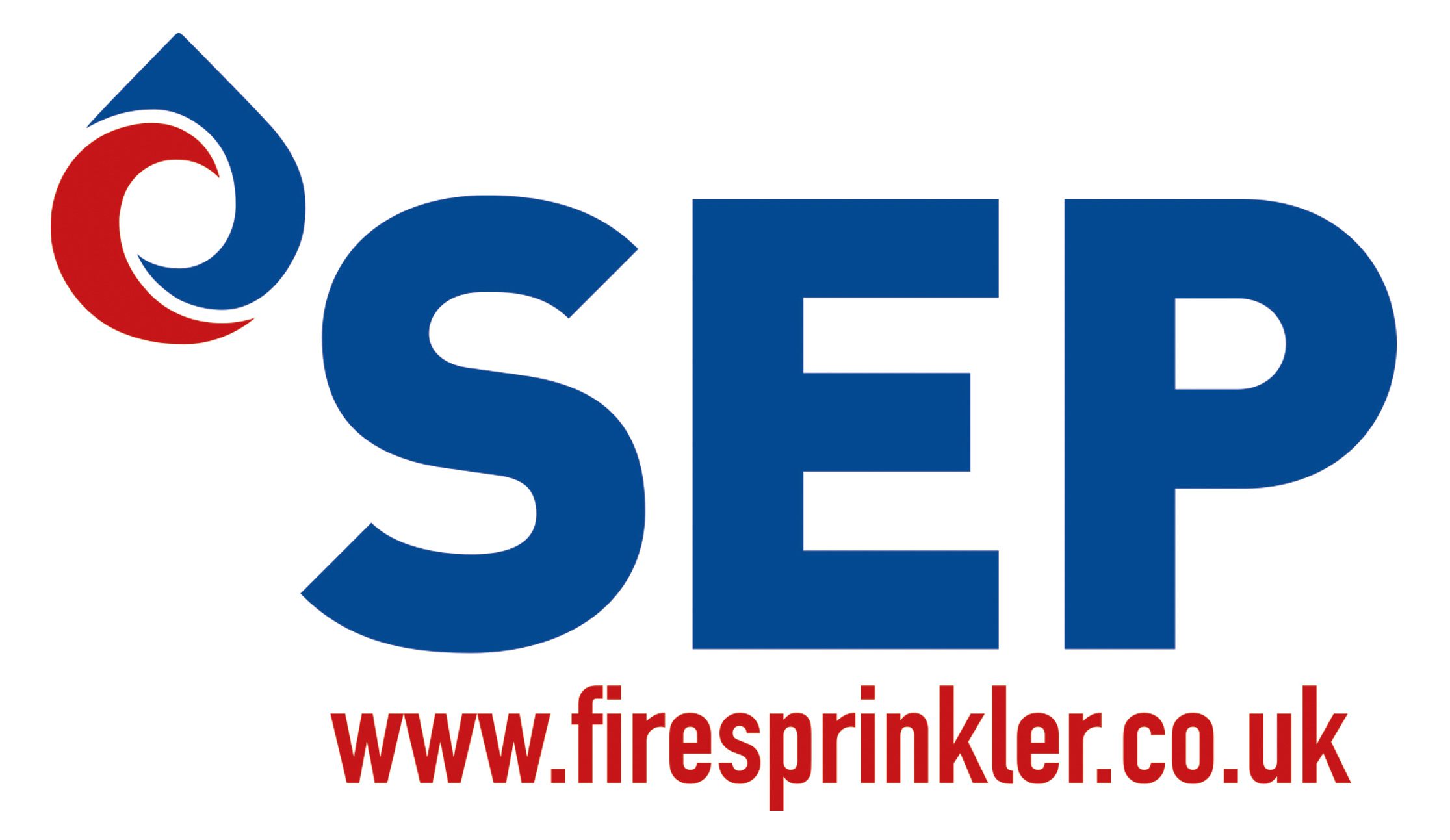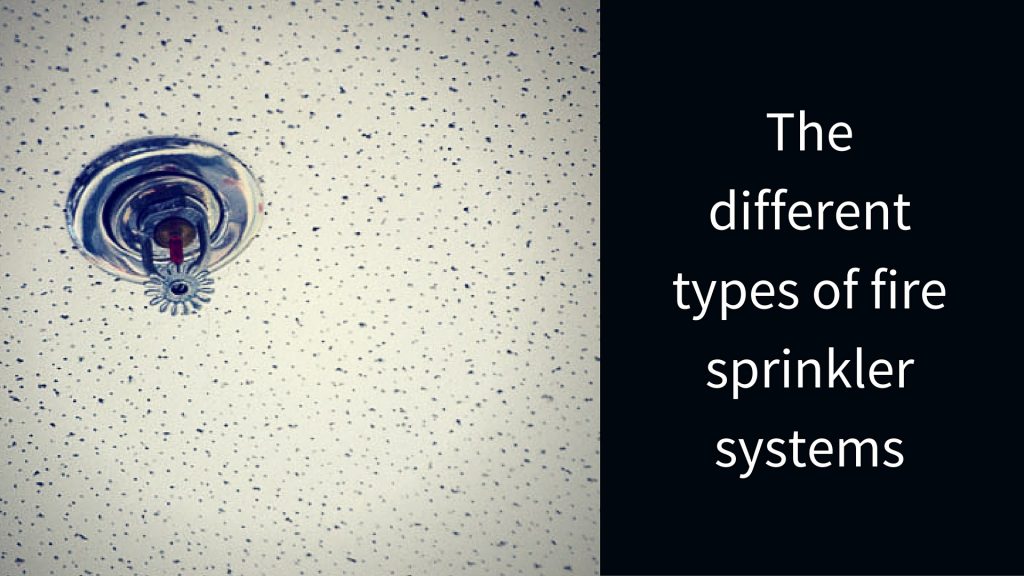Since the first recognised system, invented in 1812, many different types of fire sprinkler systems have been created to face disparate situations and environmental conditions. There are seven, which we list below:
Wet pipe systems
Wet pipe systems are definitely the most commonly used fire sprinkler systems. Why? Because it is very reliable and, at the same time, simple. Basically it works this way: in the event of a fire, water is provided to the piping via the sprinklers heads by an automatic water supply.
Dry pipe systems
These are the second most popular fire sprinkler system type. They are usually installed in unheated buildings (like parking garages for example). Here the low ambient temperature may freeze the water in an ordinary wet pipe system, making it useless.
Therefore, in this kind of sprinkler system, the water in the piping is replaced by air at a pressure below the water supply pressure. When one or more of the automatic sprinkler heads is activated, it opens so the air in the piping can come out from that sprinkler. The drop of the air pressure in the piping allows water to vent and control the fire.
Deluge systems
In this type of system all the sprinklers connected to the water piping are open in order to provide a simultaneous jet of water over the entire environment in case of fire. Indeed, they are usually installed in locations where the risk of rapid fire spread is high.
In the event of fire, an alarm activates. This signals the deluge valve to open allowing water to flow from the piping system.
Pre-action systems
Pre-action systems are used in places where accidental activation of the fire sprinklers should be avoided (like museums or Data Centres, for example).
There are two types of pre-action systems: single interlock and double interlock. The first is similar to dry pipe systems in the way they operate but in this case the vent of water is preceded by a prior fire detection event (the activation of a smoke detector for example). The system is converted from a dry to a wet system, in order to reduce the delay of water distribution to the piping that usually happens in dry systems.
The double interlock pre-action systems are similar to deluge systems but, unlike the latter, they are provided with automatic sprinklers. Also, they require that both a prior fire detection event and an automatic sprinkler activation take place before the water comes to the system piping. Otherwise, water will not get into the piping.
Foam water sprinkler systems
This special kind of sprinkler system discharges a mixture of water and foam concentrate if activated. They are generally used in case of high challenge fires, such as in the presence of flammable liquids. The foam can be inserted in any of the systems described above.
Water spray systems
Water spray systems are identical to deluge systems but, unlike the latter, the first are designed to safeguard a uniquely configured hazard (so they don’t cover all the horizontal floor area of a space). Electrical transformers, for example, are usually protected by a water spray system.
Water mist systems
This kind of system is typically used in conditions where water may damage things or in case of minimal water supplies. They are provided with a heat absorbent vapour and operate as a wet pipe, deluge, dry pipe or pre-action system. In this case a compressed gas is used to atomise the water, so it turns into a mist.
For any information on our fire sprinkler pumps and equipment range please don’t hesitate to contact us.

